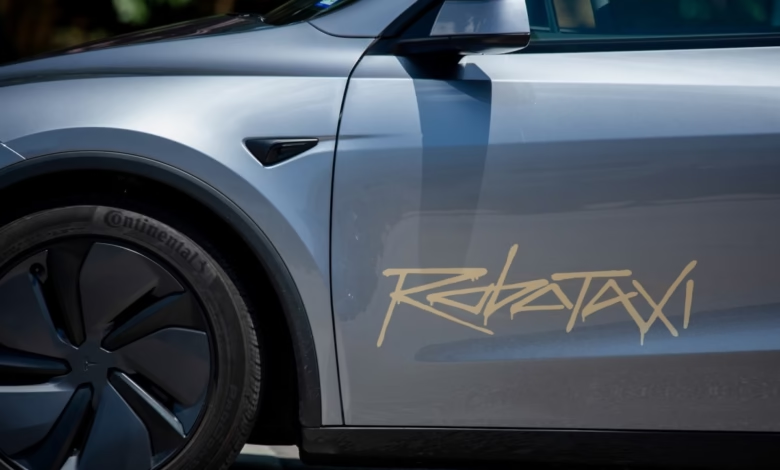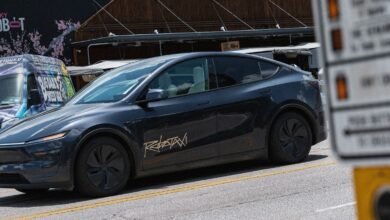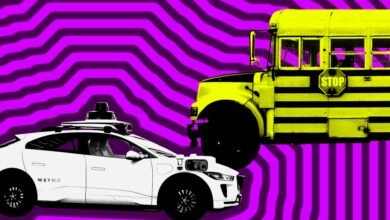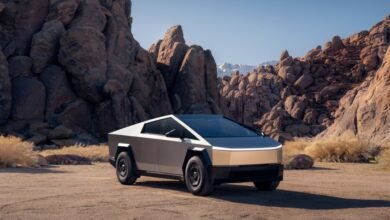Tesla Robotaxi Future & Redwood’s Next Move: TechCrunch Mobility

▼ Summary
– Tesla has launched a limited robotaxi service in Austin, testing CEO Elon Musk’s vision of fully autonomous vehicles using cameras and AI, differing from competitors like Waymo.
– Early videos of Tesla’s robotaxis show traffic violations, prompting federal regulators to request information from Tesla about the deployment.
– Reactions to Tesla’s robotaxi rollout are polarized, with some viewing it as overpromising and others as a threat to companies like Waymo, Uber, and Lyft.
– Tesla is reportedly planning another round of layoffs and pushing ahead with Cybercab production, creating a high-pressure work environment.
– Uber co-founder Travis Kalanick is reportedly working on a deal to buy the U.S. arm of Chinese AV company Pony AI, revisiting his interest in autonomous vehicles.
Tesla’s robotaxi debut in Austin has sparked intense debate, showcasing both the promise and pitfalls of autonomous vehicle technology. The limited rollout, featuring fewer than 20 vehicles with safety monitors onboard, quickly became a lightning rod for controversy after social media videos captured the cars allegedly violating traffic laws. Federal regulators have since requested details from Tesla about the deployment, underscoring the high stakes of this experiment in camera-based self-driving systems.
The polarized reactions highlight Tesla’s divisive reputation. Supporters see the robotaxis as a bold leap toward disrupting traditional ride-hailing, while critics view them as another example of Elon Musk’s overpromising. With Waymo and Uber expanding their own autonomous services, the race to dominate this space is heating up, but Tesla’s unorthodox approach keeps the industry guessing.
Behind the scenes, Tesla faces internal turbulence. Reports suggest another round of layoffs is imminent, targeting underperforming employees as Musk shifts focus back to the company after his political ventures. Meanwhile, the pressure to accelerate Cybercab production has created a tense work environment, driving some staff to depart.
In other mobility news, Uber co-founder Travis Kalanick is making waves with a potential deal to acquire Pony AI’s U.S. operations. This marks Kalanick’s latest attempt to reenter the autonomous vehicle arena after his controversial exit from Uber in 2017. The move comes as Pony AI navigates regulatory hurdles tied to national security concerns.
Startups are also securing significant funding. Nascent Materials, focused on cutting LFP battery costs, raised $2.3 million, while Indian drone company Raphe mPhibr landed a $100 million Series B. Meanwhile, regulatory scrutiny intensifies: NHTSA is pressing Ford for answers about its BlueCruise system following fatal crashes linked to the hands-free technology.
Waymo and Uber are deepening their collaboration, launching services in Atlanta after a successful Austin pilot. The partnership underscores Uber’s strategy to integrate autonomous tech across its platform, with Waymo now handling over 250,000 weekly paid rides. Serve Robotics, an Uber spinout, is also expanding its sidewalk delivery robots in the city.
Redwood Materials is pivoting into energy storage, repurposing recycled EV batteries to power AI data centers. The shift highlights the growing demand for sustainable energy solutions as tech giants grapple with soaring electricity needs.
Elsewhere, Rivian trimmed 140 jobs ahead of its R2 SUV launch, and Tesla’s sales chief Omead Afshar reportedly exited abruptly. Intel, once a contender in automotive tech, is now scaling back its efforts, shuttering its AI-enhanced chip division for vehicles.
The mobility sector remains as dynamic as ever, with breakthroughs, setbacks, and surprises around every corner. Whether Tesla’s robotaxis will redefine transportation or join the list of Musk’s ambitious but unfulfilled projects is still anyone’s guess.
(Source: TechCrunch)





